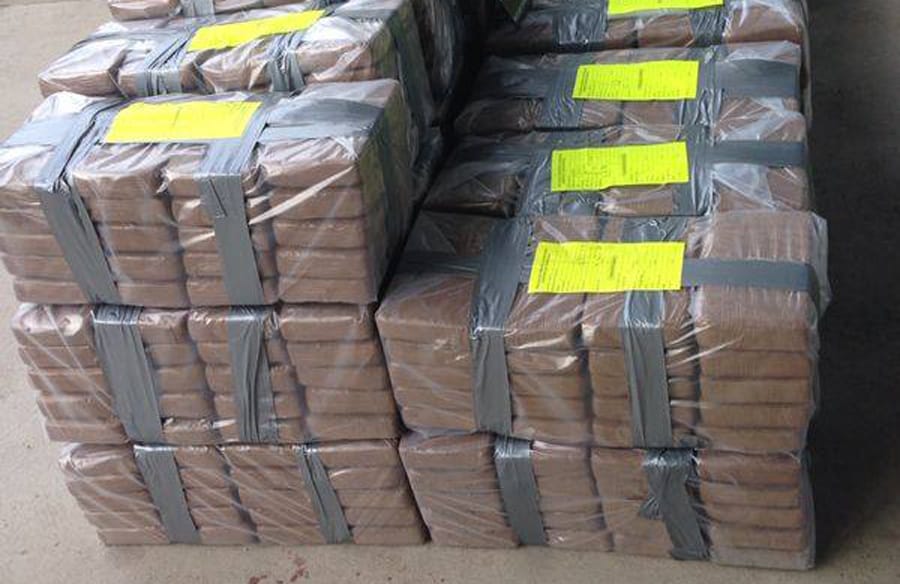Costa Rican authorities struck a major blow against international drug trafficking dismantling a criminal network that smuggled over five tons of cocaine to Europe. The Drug Control Police (PCD) led the operation, named “Purge” internationally and the “Embassy Case” domestically, resulting in 12 arrests in Costa Rica and 25 more across Spain, Germany, Portugal, and Belgium.
The group operated from the Moín Container Terminal in Limón, concealing cocaine in at least 29 shipping containers. The drugs were hidden in tin cans labeled as pineapple pulp, cassava flour, scrap materials, and even inside refrigeration systems. PCD director Stephen Madden reported that European authorities seized 3,513 kilograms of cocaine, while 1,888 kilograms were confiscated in Costa Rica. “This network used legitimate export businesses to mask their operations,” said Attorney General Carlos Díaz during a press conference.
Raids took place across four provinces—San José, Alajuela, Cartago, and Limón—targeting areas like Muelle, Pital, La Fortuna, San Ramón, and El Roble. Security Minister Mario Zamora praised the international cooperation, noting that PCD officers worked in Spain, while Spanish and Portuguese agents assisted in Costa Rica. Madden clarified that no public officials or port workers were involved, though two export offices will be investigated for related documents.
The network relied on 11 companies to facilitate its shipments, a method Díaz called a common tactic to hide drugs in legal exports. This bust builds on Costa Rica’s ongoing efforts to combat drug trafficking, particularly through Operation Soberanía, which has strengthened port security since 2023. The country’s role as a drug transit hub has grown, with European ports seizing 88 tons of cocaine from Costa Rica since 2019, according to French media outlet Le Monde.
The operation follows recent legal changes. In May, President Rodrigo Chaves signed a constitutional reform allowing the extradition of Costa Ricans for drug trafficking, prompted by rising violence. The Judicial Investigation Agency (OIJ) notes a 10% increase in drug-related homicides in Limón since 2022, reflecting the growing challenge.
Zamora emphasized Costa Rica’s resolve: “We’re showing traffickers they can’t operate here without consequences.” The collaboration with European and U.S. partners, including FBI and DEA support, signals a stronger stance against organized crime. Ongoing investigations may lead to further arrests as authorities continue to disrupt this transnational network.






